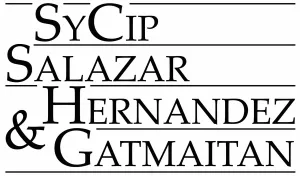- within Media, Telecoms, IT, Entertainment, Environment and Corporate/Commercial Law topic(s)
- with readers working within the Retail & Leisure industries
1. Is a letter informing the Bureau of Internal Revenue (BIR) that the taxpayer is "in the process of compiling necessary documentation" a valid protest?
No. In Commissioner of Internal Revenue v. Court of Tax Appeals and CitySuper, Incorporated (G.R. No. 239464, May 10, 2021), the Supreme Court ruled that such a letter is not a valid protest because it does not contain the requisite information and conditions prescribed under the National Internal Revenue Code, as amended (Tax Code) and BIR revenue regulations.
An administrative protest must be made in the form and manner prescribed by implementing rules and regulations. Section 3.1.14 of Revenue Regulations No. 18-2013 (RR No. 18-13), amending Revenue Regulations No. 12-99, states the requirements for a valid protest. Under these regulations, the taxpayer must state in his protest: (i) the nature of the protest whether reconsideration or reinvestigation, specifying newly discovered or additional evidence he intends to present if it is a request for reinvestigation, (ii) the date of the assessment notice, and (iii) the applicable laws, rules, and regulations or jurisprudence on which his protest is based. Failure to state any of these would render the protest void.
While the declaration that the taxpayer was in the process of compiling the necessary documentation to support its protest could imply that it was requesting a reinvestigation, its failure to explicitly state this means that the Commissioner of Internal Revenue (CIR) had no way of knowing the period it should monitor under RR No. 18-13. The Supreme Court also said that "[a]ttaching copies of the audit results/assessment notices is not stating the date of the assessment notice, any more than attaching copies of assailed judgments to a petition without stating them in the petition itself complies with the rule on statement of material dates."
The Supreme Court held that the taxpayer's protest was void for failing to conform with the requirements under BIR regulations, as mandated by the Tax Code. There being no valid protest to speak of, there is no disputed assessment that may be raised to the Court of Tax Appeals (CTA), and the CTA did not acquire jurisdiction over the subject matter of the case.
2. Under the Tax Code, should a representative office be taxed as a regional headquarters (RHQ) or a regional operating headquarters (ROHQ)?
The representative office should be taxed similar to a regional headquarters.
In Commissioner of Internal Revenue v. Shinko Electric Industries Co. (G.R. No. 226287, July 6, 2021), respondent is a representative office of a foreign corporation organized and existing under the laws of Japan. It was assessed deficiency income and value-added taxes (VAT) by the Commissioner of Internal Revenue (CIR) on the ground that since respondent "'is engaged in the "promotion of the parent company's product' as stated in its SEC Registration, it should be taxed as a Regional Operating Headquarter (ROHQ) which derives income from the Philippines." The CIR further argued that once a foreign business entity performs qualifying services within the Philippines, it should be treated as an ROHQ for taxation purposes.
In deciding the case, the Court looked at the differences among an RHQ, an ROHQ, and a representative office:
1. A representative office and an RHQ are not allowed to engage in any income-generating activities in the Philippines. On the other hand, an ROHQ provides qualifying services that generate income in the Philippines;
2. Both representative office and an RHQ do not earn or derive income in the Philippines. An ROHQ is allowed to derive income in the Philippines;
3. Unlike an RHQ and an ROHQ, a representative office deals directly with the parent company's clients and not with the affiliates, branches, or subsidiaries;
4. Under the National Internal Revenue Code, as amended, RHQs are exempt from both income tax and VAT so long as they do not render any of the qualifying services, whereas ROHQs are subject to the then applicable tax rate of 10% of their taxable income from its qualifying services and 12% VAT
From the foregoing, the Court agreed with the CTA that the representative office, while not defined under the Tax Code is akin to an RHQ and not to an ROHQ.
The representative office is allowed under the law to undertake only certain kinds of activities such as information dissemination, promotion of the parent company's products as well as quality control of the products. These activities, while directed to the parent company's client, are not income-generating, similar to the activities of the RHQ, in stark contrast with the qualifying services performed by the ROHQs. Since the representative office is primarily engaged in non-income generating activities like an RHQ, by analogy, it should be considered exempt from income tax and VAT.
Applying the discussion above to the evidence submitted by the respondent, the Court ruled that respondent has sufficiently established that it is a representative office and, therefore, not liable for income tax and VAT.
To view full article click here
The content of this article is intended to provide a general guide to the subject matter. Specialist advice should be sought about your specific circumstances.


